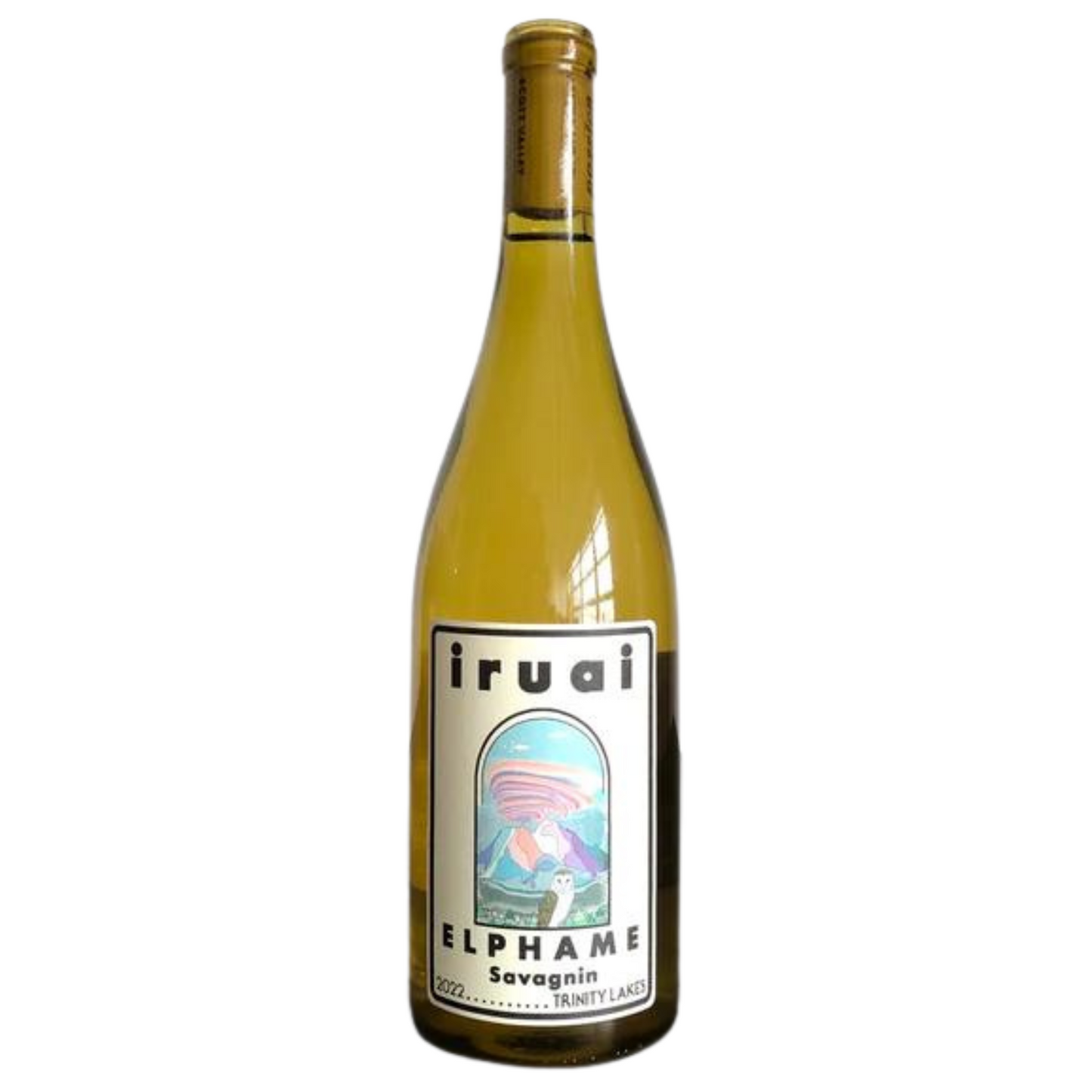Iruai 'Elphame' Savagnin 2022 (750 ml)
Iruai 'Elphame' Savagnin 2022 (750 ml)
Couldn't load pickup availability
100% Savagnin
Trinity Lakes AVA
12.5% ALC / 200 cases produced
Like a neon tractor beam jetting out of the Trinity Alps, our fifth vintage of the 'Elphame' Savagnin has both exceeded my expectations and my comprehension. Rocky and electric, with a tropical punch and a heady herbal tea perfume, if you feel like you've experienced a case of missing time, that means it's working. The owls are not what they seem.
Summer Peach . Teasan . Lemon Bar . Flint
FOOD trout, grilled peaches, radish + herb salad
_____
Iruai Winery (“ear-oo-eye" … the artist formerly known as Methode Sauvage) was started in 2013 by Chad and Michelle Westbrook Hinds in Berkeley, CA as a gypsy natural wine project, before laying down roots in Michelle’s beautiful hometown of Etna, CA in the mythical Shasta-Cascade mountains of Siskiyou County in 2019.
Trading in the urban winery hustle for the vigneron life, we are exploring avant garde vineyard planting and rehabilitation techniques using the permaculture methods laid out by Masanobu Fukuoka, while formulating our own “chaos organics” method of re-enchanting the land. Truly unlike anywhere else in California, Scott Valley in Western Siskiyou County (not to be confused with Scotts Valley) feels like a cross between Switzerland and Montana, cut with a rain shadow from Mount Shasta that divides it starkly between high mountain prairie and dense alpine forests.
Finding ourselves in largely untested grape growing territory, with high elevations and a continental climate, we have turned Iruai into an exploration and celebration of esoteric varieties that flourish in the Alps of Europe. While we work to grow our Scott Valley estate vineyard projects, we purchase fruit and lease vineyards throughout the Shasta-Cascade, from the Trinity Alps of California to the Siskiyou Mountains of Southern Oregon.
We seek to make wine with a sense of place by employing no additives, and removing no character. Our goal in the vineyard is to let the vines thrive like they would in the wild, and in the cellar, to shepherd each ferment through its own natural development and evolution.


